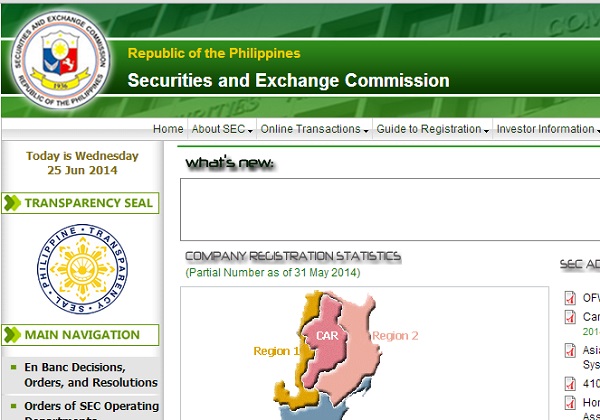PH to join Apec finance services initiative
THE PHILIPPINES remains hopeful to join the pilot of an Asia Pacific Economic Cooperation (Apec) initiative aimed at allowing financial services professionals to sell market investment products to retail customers in neighboring Asian countries.
Commissioner Manuel Huberto B. Gaite of the Securities and Exchange Commission (SEC) told reporters on Friday that Apec member-economies—Australia, New Zealand, Singapore and South Korea—are scheduled to sign the statement of understanding for the so-called Asia Region Fund Passport on the sidelines of the finance ministers’ meeting in Cebu in September.
The Philippines was among the countries interested to pilot the Asia Region Fund Passport, but it cannot be a part of the initiative pending the approval of its reapplication for Appendix A of the International Organization of Securities Commissions (IOSCO), Gaite said on the sidelines of the Apec Workshop on Infrastructure Financing and Capital Market Development held in Iloilo City.
The SEC official expressed optimism that the country would be able to become an IOSCO member by September so it could be eligible to join the Apec-led initiative by the end of the third quarter. Gaite said Japan was also interested to join.
The signing of the memorandum of understanding for the Asia Region Fund Passport would be held in November or December, he said.
Article continues after this advertisementThose that will pilot the initiative would be given six months to conform to the rules before actual transaction takes place by the second half of next year, Gaite said.
Article continues after this advertisementHe said such cross-border transactions would be first limited to Apec member-economies in Asia before members in the other side of the Pacific could participate.
The official admitted that there remained regulatory barriers, such as cross-border tax issues, that would deter its full implementation across all 21 Apec member-economies.
Apec had said the Asia Region Fund Passport was “intended to reduce regulatory inconsistency and overlap which makes it difficult for collective investment scheme operators to offer products such as mutual funds to retail customers in multiple economies in the region.”
